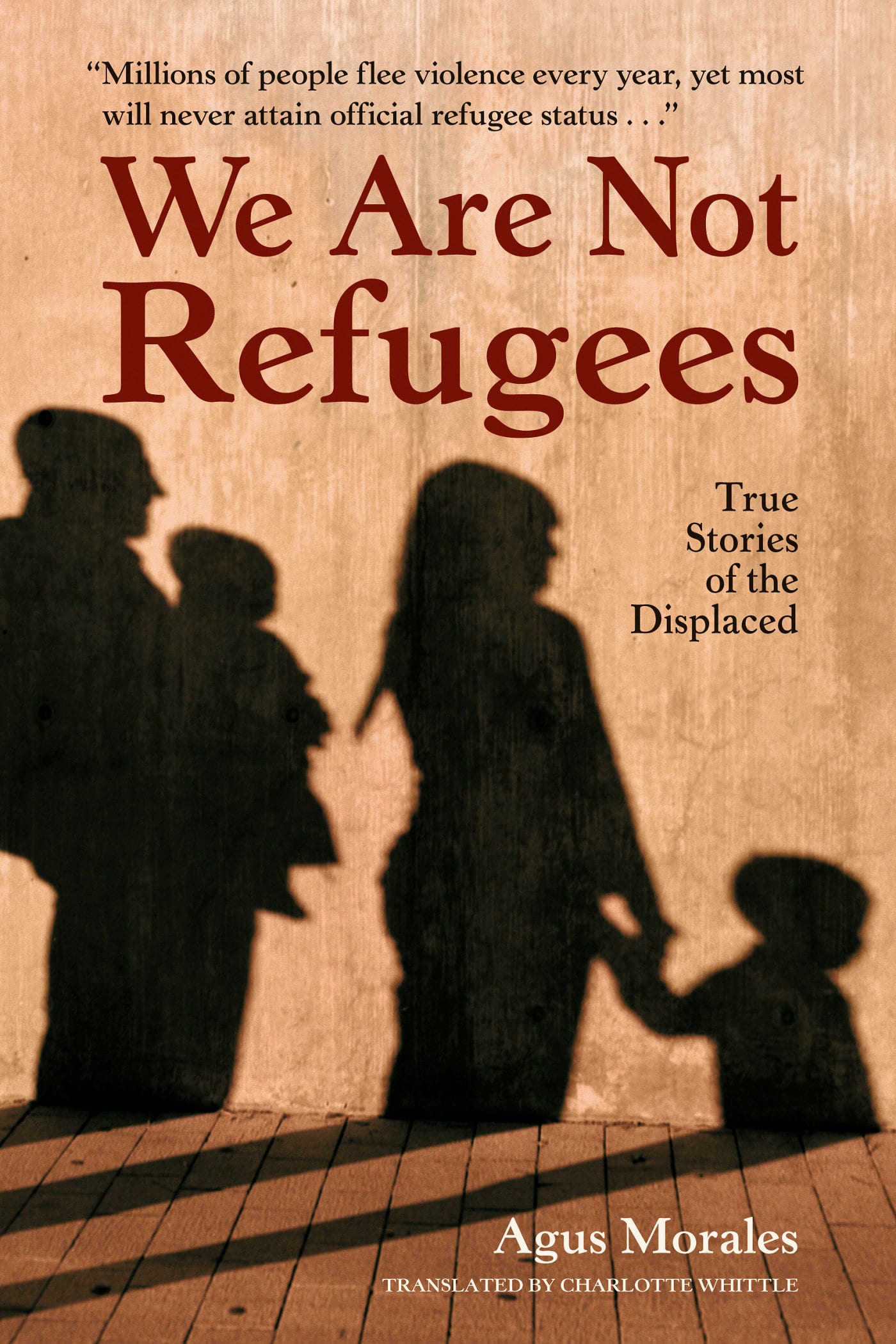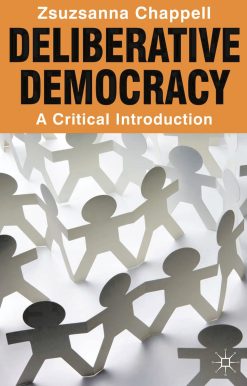We Are Not Refugees: True Stories of the Displaced
13.00 JOD
Please allow 2 – 5 weeks for delivery of this item
Add to Gift RegistryDescription
Never in history have so many people been displaced by political and military conflicts at home—more than 65 million globally. Unsparing, outspoken, vital, We Are Not Refugees tells the stories of many of these displaced, who have not been given asylum. For over a decade, human rights journalist Agus Morales has journeyed to the sites of the world’s most brutal conflicts and spoken to the victims of violence and displacement. To Syria, Afghanistan, Pakistan, and the Central African Republic. To Central America, the Congo, and the refugee camps of Jordan. To the Tibetan Parliament in exile in northern India. We are living in a time of massive global change, when negative images of refugees undermine the truth of their humiliation and suffering. By bringing us stories that reveal the individual pain and the global scope of the crisis, Morales reminds us of the truth and appeals to our conscience.”With the keen eye and sharp pen of a reporter, Agus takes us around the world to meet mothers, fathers, [and] children displaced from their homes. Now, more than ever, this is a book that needed to be written and needs to be read.”—Ali Noraani, Executive Director of the National Immigration Forum and author of There Goes the Neighborhood: How Communities Overcome Prejudice and Meet the Challenge of American Immigration”Morales notes [that] those who live on the margins are not even refugees, often seeking survival without the UNHCR, internally displaced people whose stories we need to hear, whose lives we need to remember. . . a must read.” —Dr. Westy Egmont, Professor, Director of the Immigrant Integration Lab, Boston College School of Social Work
Additional information
| Weight | 0.34 kg |
|---|---|
| Dimensions | 1.63 × 14.05 × 20.96 cm |
| PubliCanadation City/Country | USA |
| book-author1 | |
| Format | Paperback |
| Language | |
| Pages | 288 |
| Publisher | |
| Year Published | 2019-3-5 |
| Imprint | |
| ISBN 10 | 1623545323 |
| About The Author | Agus Morales is a journalist who has spent the last decade writing about victims of war and the displaced. He is in love with the Indian subcontinent, where he spent over five years as a correspondent for the Spanish news agency Agencia EFE in both India and Pakistan. He then spent three years with Doctors Without Borders, following population movements in Africa and the Middle East. He is now an independent reporter whose work has appeared in the New York Times en Español, among other places. He is a founder and director of the international journal Revista 5W, and he holds a PhD in language and literature. Agus lives in Barcelona, Spain. |
| Table Of Content | Before We Begin . . . . . . . . . . . ix "We Are Not Refugees" . . . . . . . 1 Part I Origins: Why Are They Fleeing? . . . . . . . . . . . . . 7 Bin Laden, Refugee, Afghanistan and Pakistan . . . . . 15 A Doctor Is More Dangerous Than a Fighter, Syria . . 28 Plastic Bottles, South Sudan . . . . . . . . . . . . . . . . 48 Part II Flights: Who Are They? . . . . . . . . . . . . . . . . . . . 63 In the Shade of a Turkish Lemon Tree, Salwa and Bushra, from Syria . . . . . . . . . . . . . 70 Because of an Iranian Accountant, Nesime, from Afghanistan. . . . . . . . . . . . . . . . 79 The Forgotten lake Kivu, Birihoya, Julienne, and David, from the Deomcratic Republic of Congo . . 88 Part III The Camps: Where Do They Live? . . . . . . . . . . . . 99 The City of Refugees, Zaatari (Jordan) . . . . . . . . . 105 Open-Air Prisons, Malakal (South Sudan) . . . . . . . . 114 The Spirit o fhte Migrant Shelters, Ixtepec (Mexico). 125 Part IV Routes: How Do They Travel? . . . . . . . . . . . . . . . 145 Waiting for the Beast, Central America— The United States The Route of Shame, Turkey—Greece—The Balkans. 164 Libyan Waves, Mediterranean Sea . . . . . . . . . . . . 185 Part V Destinations: When Do They Arrive? . . . . . . . . . . 201 A Ticket to Limbo in Refugee Class, Central African Republic . . . . . . . . . . . . . . . . . 209 The Refugee Parliament, Tibetans in Exile . . . . . . . . 233 The Last Border, Syrians in Europe . . . . . . . . . . . . 251 Acknowlegements . . . . . . . . . . . . . . . . . . . . . . . 269 |
| Excerpt From Book | Before We BeginI met Khalid in an Istanbul apartment in spring 2013. He hadfled the violence in Iraq. He was suffering from hypertension,diabetes, asthma . . . he was taking pills of every color underthe sun and couldn’t stop complaining about his illnesses, eventhough he’d just received the news of a lifetime: he’d been grantedasylum by the United States. At my assurance that an ideal futureawaited him, Khalid finally allowed himself to be carried away byeuphoria—he lifted his hands as if turning a steering wheel, andthen he waved and bestowed a haughty glance on an imaginarycrowd. I’ll buy myself a great set of wheels in Detroit, he seemedto be thinking.This is an image that President Donald Trump would like tosuppress. With Trump’s rise to power in the United States, theconstruction of the refugee as an enemy—a criminal, a terrorist,0668_Refugees_i-xvi,1-272_r1jm.indd 9 6/26/18 7:29 AMWe Are Not Refugeesxa threat to U.S. safety—has reached its peak. The fact that mostpeople seeking asylum in the United States and Europe are likeKhalid—ordinary people trying to escape violence—is a realitythat Trump and his supporters deny. Refugees, then, becomeobjects of fear; the human dimensions of their stories are erasedand replaced by a caricature promoting the agenda of a presidentfor whom fear is politically expedient.The truth is that the story of Khalid’s asylum is an exception.He is part of a minority. Millions of people flee violence everyyear, but most will never attain official refugee status, whetherin the United States or anywhere else. Their requests are likelyto be denied because asylum systems, even where they exist, arenot prepared to deal with millions of applications. In the case ofthe United States, new restrictions banning citizens of predominantlyMuslim countries (which were challenged in court afterthey were issued) paint an even more dreadful picture. But mostimportant, many in need of asylum will never even reach thepoint of being able to apply. The vast majority of those fleeingviolence remain in their own countries or in neighboring ones,experiencing scenarios very different from that of Khalid, andmany do not identify with the label refugee—because they haven’tobtained asylum, because they don’t want to become refugees, orsimply because they don’t want to be labeled at all.Although there is no single, universal refugee experience,most of the people whose stories appear in this book share a struggleto escape conditions of brutality and privation that most of uscan only imagine. The paradox is that we tend to focus preciselyon these moments of crisis, and fail to understand what happensbefore or after they flee. We think of them not as human beings,but as either victims or objects of suspicion, depending on ourideology. We tend to define these people exclusively by theirwounds.0668_Refugees_i-xvi,1-272_r1jm.indd 10 6/26/18 7:29 AMxiBefore We BeginBut to come closer to understanding their situation, we mustlisten to them speak not only of hardship, but of hope; not only ofmoments of crisis and escape, but also the tedium of waiting, andof uncertainty. Only then can we engage in the cultural battle todefine who these people are. And maybe the answer is much simplerthan we thought.Over the past decade, I’ve spoken with hundreds of refugeesand nonrefugees. Some of them were unwilling to speak publiclydue to fear of reprisal, even death, at the hands of security forcesand militias. But many were eager to talk, to give voice to theexperience of millions of others like them whose stories willnever be heard. Why risk speaking to a journalist, a foreigner andstranger, after you’ve fled air strikes in Aleppo or gangs in Honduras?I wouldn’t have done it myself had I been in their shoes. Andyet many of them did. These are their stories. |
Only logged in customers who have purchased this product may leave a review.






Reviews
There are no reviews yet.